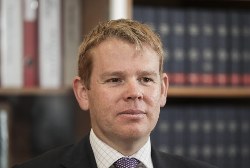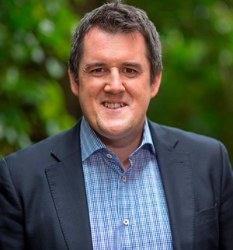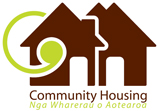Clark: Conference on Child Abuse and Neglect
Wednesday 15 February 2006
Rt Hon Helen
Clark
Prime Minister
Address at
10th
Australasian Conference on Child Abuse and
Neglect
Michael Fowler Centre
Wellington
9.00
am
Wednesday 15 February 2006
Good morning everyone.
It’s good to be with you at this tenth Australasian Conference on Child Abuse and Neglect on this first occasion that the conference has been held in New Zealand.
Holding the conference here enables New Zealanders involved in the vital task of the care and protection of children to show Australian colleagues the way in which our country endeavours to address the complex challenges involved.
It is an honour for our country to be welcoming participants from around our region, from Australia and the Pacific, and from further afield. I especially acknowledge Jaap Dock, the Chair of the United Nations Committee on the Rights of the Child.
I also want to thank and acknowledge all the New Zealanders present for their work for children and young people – particularly the front line social workers who do a very difficult job, often amidst much public scrutiny and criticism.
I acknowledge too the young people at the conference. Your presence gives us the opportunity to hear your voices, and that is a very positive aspect of this conference. Many of you are members of the Children’s Commissioner’s Reference Group, and I thank you for your ongoing commitment to that.
Family violence is a problem of critical importance. Its high incidence and its human cost are unacceptable.
As a community we monitor with concern and alarm road deaths and accidents. What we don’t hear about so often are the number of families who are devastated by family violence. When we do, we cannot but be shocked by what we hear.
Every year, about 10 children are killed in New Zealand by a member or members of their family.
Between 20 November and the beginning of January this year, six women were killed by their partners or former partners. Their deaths left at least 19 children without a mother.
During December and January, Police attended nearly 11,000 instances of reported family violence. That’s about one incident every eight minutes. More than 6,000 children witnessed this violence. More than half those children were under five.
At the government level, we must commit to doing whatever we can to stop this from happening. Our vision must be for every New Zealander to be able to flourish and thrive in a strong society.
I am personally committed to building a society with opportunities for everyone to participate and achieve their potential – across all our diverse communities.
This means more than helping families to just get by. Families need good incomes, adequate housing, and access to education and health care. Parents and caregivers need the jobs and the skills which enable them to support their children. Vulnerable families need help at the earliest possible point.
Children too need strong relationships and good self-esteem. They need to know that adults respect their rights, and that they have a voice. They need to be able to flourish; and where in some tragic cases they are damaged, they need to be supported into safety where their resilience can take over.
We all know that the early years are critical to children’s wellbeing and outcomes. It’s important that we in government commit to giving young children the best start in life by supporting parents and families in their parenting role. And it’s important to view family violence, and care and protection, within the broader context of social development.
One of the primary goals of social development is that people have the economic security they need not only for the essentials of life, but to enable them to participate in society.
Through the Working for Families package, our government has made the biggest investment for three decades in boosting the incomes of New Zealand’s families with dependent children.
When our Working for Families programme is fully implemented in April next year, around seventy per cent of all New Zealand families will qualify for family tax relief to help meet the costs of raising their children.
Using a poverty threshold of sixty per cent of household median income, Working for Families is forecast to lead to a thirty per cent reduction in child poverty.
It is estimated that that will reduce New Zealand’s child poverty rate to below the OECD average, and to a rate roughly equivalent to that of the Netherlands – a nation we view here as progressive in its social policies.
The boost to family income is being accompanied by a number of other measures to support families with children and to support a better work – life balance for families.
For example:
- Paid Parental Leave was introduced almost four years ago to enable parents with new babies to be supported at that critical time. The period of leave now equates to the International Labour Organisation standard of fourteen weeks, and is being extended to self-employed parents and to those employed for under a year but more than six months.
- From 1 April next year New Zealanders become eligible for four weeks minimum annual holiday – something Australians have enjoyed since the early 1970s! The extra week will help parents with dependent children at times like school holidays when it’s important to spend time together.
- The improvements we’ve made to the law on sick and domestic leave also help working families with children. We have separated out bereavement leave from that entitlement so that it does not impinge on sick and domestic leave, and we've enabled people to accumulate their leave for up to fifteen days. It is very worrying for parents if their work commitments cut across the vital care sick children need.
- Big investments are also being made in early childhood education, childcare and afterschool care, both in quality and in affordability. The numbers of families eligible for support have increased markedly. A major initiative for next year is the introduction of twenty hours free early childhood education for three and four year olds in teacher led, licensed centres.
In this term in office we are committed to extra support for well child health programmes, including more well child checks for under fives; introducing a new pre-school check to pick up issues which could impact on ability to learn; and introducing a hearing test for newborns at an early stage.
As well, last year’s Budget funded a number of other initiatives as part of developing a comprehensive approach to early intervention. They include:
- a pilot programme to provide parent support from early childhood centres
- an expansion of the Family Start home visiting programme into small towns and rural communities
- study awards to improve qualification levels of Family Start workers
- a pilot to provide free high quality early childhood education for Family Start and Early Start children.
It’s important to emphasise that the success of many of these initiatives depends on close collaboration between the government and non-governmental organisations.
Relationships between the two were severely strained in the 1990s, but we have been determined to rebuild them – and those relationships are critical to achieving the vision of Te Rito, the New Zealand Family Violence Prevention Strategy, to see all our families and whanau living free from violence.
Achieving that vision requires strong and high level commitment.
That’s why, last year we established not only a Ministerial Team to provide visible leadership on family violence, but also an Interagency Taskforce drawing members from both the government and non-government sectors representing organisations which work with families experiencing family violence and provide family services.
The Taskforce is mandated to look at issues like:
- how to prevent family violence occurring in the first place by changing attitudes towards violence
- how to ensure that victims of violence are safe and the perpetrators are held to account; and
- how to ensure that families affected by violence can recover.
The Taskforce will report to the Ministerial team by this July, with proposals on the further work needed to reduce and prevent family violence. This will include the fundamental societal changes we need to make if we are to achieve Te Rito’s vision of families and whanau living free from violence.
The New Zealanders present are well informed about the debate in our country over Section 59 of the Crimes Act, which provides a defence of reasonable force for assault of a child.
Suffice it to say, some of the case law precedents set are less than edifying, and have contributed to calls for the legal defence to be removed.
This ends up being crudely and wrongly represented in the media as calls for a ban on smacking, which it is not.
Parliament will be debating this measure again shortly. It is not clear at this time where the balance of opinion will lie. My personal hope is that more can be done to protect children through change to the law.
Finally today I wish to mention the work of Family and Community Services, established in July 2004 as a division of the Ministry of Social Development, to lead and co-ordinate government and non-government actions to support families and communities. This division focuses on prevention and early intervention to build the capability and resilience of families and communities and to reduce the numbers of families who are affected by family violence.
Initiatives like Everyday Communities and SKIP, Strategies with Kids Information for Parents, are innovative, community-based projects which support positive parenting and work to end child abuse.
The SKIP programme supports parents to bring up children in a positive way, using love and nurture as well as setting boundaries to guide and teach them, as an alternative to more traditional notions of discipline.
SKIP does this through: funding and supporting community organisations to develop collaborative projects which support and inform parents; developing resources for parents and the organisations which support them; and working in partnership with national organisations to build their capacity to support parents.
Two years ago, funding was allocated over three years aimed at building strong Pacific families living free from violence. The Strong Pacific Families Strategy funds community dialogue to make people more aware of family violence. It works through community and church leaders, and develops resources to increase awareness of family violence.
The government’s partnerships with organisations like Barnardos, Child Abuse Prevention Services, Plunket, Women’s Refuge, and Relationship Services also result in programmes and services to reflect communities’ needs and which can frequently be delivered by communities.
I note that the Amokura Family Violence Prevention Project in Northland/Te Tai Tokerau is bringing together seven iwi authorities to co-ordinate violence prevention and early intervention, and I’m pleased that the Amokura project features in the programme for this conference.
In summary, there are many initiatives across government, and between government and the community sector, aimed at tackling family violence and its causes. They are set against the broader background of a vision for social development, which seeks to enable all our families to flourish.
Working together, I know we can make a big difference for our families and our children.
With the learning gained from this conference, and with a commitment to collaboration, I believe we can build a better country for our children.
ENDS


 Gordon Campbell: On bird flu, AUKUS entry fees and Cindy Lee
Gordon Campbell: On bird flu, AUKUS entry fees and Cindy Lee Labour Party: Penny Drops – But What About Seymour And Peters?
Labour Party: Penny Drops – But What About Seymour And Peters? Government: PM Announces Changes To Portfolios
Government: PM Announces Changes To Portfolios Family First: Just 1 In 6 Oppose ‘Three Strikes’ - Poll
Family First: Just 1 In 6 Oppose ‘Three Strikes’ - Poll Labour Party: Budget Blunder Shows Nicola Willis Could Cut Recovery Funding
Labour Party: Budget Blunder Shows Nicola Willis Could Cut Recovery Funding  Government: Urgent Changes To System Through First RMA Amendment Bill
Government: Urgent Changes To System Through First RMA Amendment Bill Peace Movement Aotearoa: Global Military Spending Increase Threatens Humanity And The Planet
Peace Movement Aotearoa: Global Military Spending Increase Threatens Humanity And The Planet


